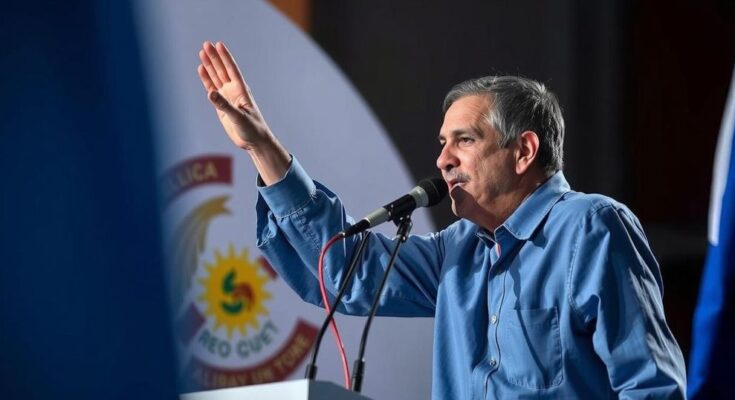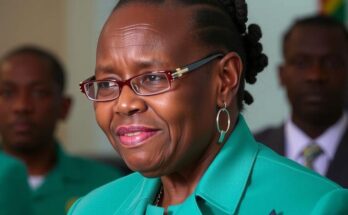Uruguay’s governing party conceded the presidential runoff to leftist challenger Yamandu Orsi, marking the end of a conservative administration. Alvaro Delgado acknowledged Orsi’s victory, reflecting a broader trend of voters rejecting incumbents globally. Orsi, a moderate leader, promises to address key social issues while avoiding drastic reforms, aiming to continue the legacy of the Broad Front’s previous governance.
The recent presidential runoff in Uruguay resulted in a significant political shift as the conservative governing party conceded defeat to left-wing challenger Yamandu Orsi of the Broad Front. Alvaro Delgado, the candidate from the centre-right coalition, publicly recognized his loss to Orsi, marking an end to a government that had ruled since 2020. Despite the close results, with Delgado receiving roughly 46% and Orsi about 49% of the votes counted, the election reflects a broader trend of voters around the globe expressing dissatisfaction with incumbent parties, particularly in the aftermath of the pandemic. Orsi, a moderate leader, has pledged to address pressing issues like childhood poverty and organized crime while maintaining a balanced approach reminiscent of his party’s past governance, without instituting radical reforms.
Uruguay’s political landscape has undergone a notable transformation with the recent elections, ending a short-lived conservative regime that began in 2020. The Broad Front, which previously governed for 15 years, earned international recognition for its progressive reforms, including the legalization of abortion and same-sex marriage. This transition signifies not only a return to leftist governance but also reflects a global sentiment where citizens are increasingly challenging ruling parties that have struggled with economic recovery post-COVID-19. Yamandu Orsi’s leadership is anticipated to focus on investment incentives and moderate social reforms, addressing public concerns without altering the foundational policies that characterized the Broad Front’s earlier governance.
The election result in Uruguay underscores a pivotal moment for its political future, transitioning back to the Broad Front under Yamandu Orsi’s leadership. This shift indicates not only local governance changes but also aligns with a global trend wherein voters express frustration with current administrations. Orsi’s moderate stance is expected to navigate the country toward reforms while maintaining essential continuity in policies that support social welfare, all while preparing to fulfill the expectations of a concerned electorate seeking improvement in living conditions.
Original Source: www.shropshirestar.com




